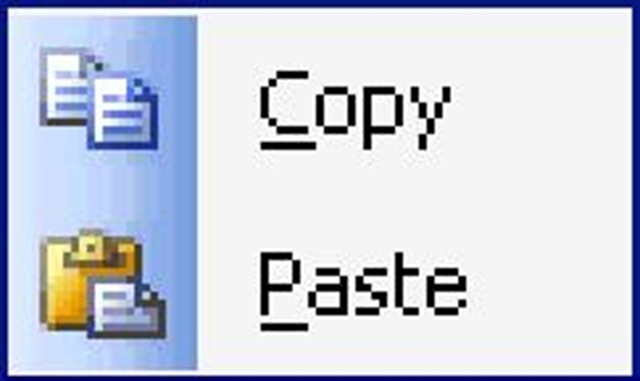Prep 4 Min
About this blog

The Rev. Timothy Cargal, Ph.D., serves as Assistant Stated Clerk for Preparation for Ministry in Mid Council Ministries of the Office of the General Assembly.
“... the Land that I Will Show You” is the blog of the Office of Preparation for Ministry of the Presbyterian Church (U.S.A.). This blog is designed to serve as a resource for those discerning and preparing for a call to the ministry of Word and Sacrament as ordained teaching elders of the church. It will also provide a place for reflecting on and dialoging about the changing context of pastoral ministry in the early 21st century.
For quick announcements about changes or developments in the preparation process, dates related to exams or other key events, discussion boards, surveys, etc., you can follow us on Facebook at “Preparing for Presbyterian Ministry.”
Recent posts
- Clarification of Evaluation Standards for the Standard Ordination Exams
- BCE Preparation Resource Released
- PCC Responds to September 2016 BCE
- PCC Letter on BCE Preparation
- Bible Content Exam Results
Categories
- Ordination Process (34)
- Ordination Exams (30)
- Ministry Context (16)
- Ordained Ministry (8)
- Bible study (2)
- View all categories →
Archives
Plagiarism in Ordination Exams
 During my six years working with the preparation for ministry process for the Office of the General Assembly, I had previously worked with presbyteries on three occasions investigating cases of plagiarism in the standard ordination exams. For the just completed Summer 2015 exams, I am now working with five presbyteries.
During my six years working with the preparation for ministry process for the Office of the General Assembly, I had previously worked with presbyteries on three occasions investigating cases of plagiarism in the standard ordination exams. For the just completed Summer 2015 exams, I am now working with five presbyteries.
To be clear, I am not talking about cases of “technical” or “minor plagiarism.” I recognize that there are those who think that “sloppy” identification of sources or quotations that don’t follow “proper academic standards of citation” are not “really plagiarism.” Such examples of directly using words from the Book of Order or The Book of Confessions with only a parenthetical paragraph notation and nary a question mark to be seen are legion within the exams. As a published author and a former university and seminary professor I disagree with those who argue such practices aren’t plagiarism, but that is a discussion perhaps for another day.
My concern in this post is cases of plagiarism that must be acknowledged as such by any definition of the term:
- Using paragraphs from the Presbyterian Church (U.S.A.) website without quotation marks or citation of the webpage addresses
- Taking not only sentences worth of text but even the question and answer format of a lesson plan directly from a book that was never mentioned
- Relying extensively on material published on the Internet—again never mentioned—and even using direct quotations of other works within that material as if they were findings of the test takers’ independent research
- Directly copying answers previously submitted by other persons who had taken the ordination exams
Before candidates can even access the questions on any of the exams they must “sign” their names to an affirmation that they will comply with testing procedures that include “us[ing] only resources authorized by the exam instructions and … acknowledg[ing] any use of print or digital resources through proper, academic style citation,” and not “discuss[ing] the examination questions or [their] responses with anyone.” The affirmation includes acknowledgement that the test taker “understand[s] that once submitted … responses will be reviewed by a program that will compare them to all other submitted responses and materials available on the Internet.” There can be no excuse, then, that they did not know the expectations.
But violation of exam procedures is only part of what makes plagiarism such a serious matter in the ordination exams. The Book of Order requires that at final assessment a candidate must present “[e]vidence of readiness to begin ordered ministry as a teaching elder” including “wisdom and maturity of faith, … honest repute, and sound judgment” among other qualities (G-2.0607a). To plagiarize the work of others at such a crucial stage in the preparation process is easily seen as evidence of an absence of wisdom, maturity, honesty, and sound judgment.
When plagiarism is found in the ordination exams, the entity of the presbytery overseeing the candidate’s preparation for ministry is provided with documentation regarding the violation of the affirmation to comply with exam procedures. That notification begins an investigative process by the presbytery that can result in a range of outcomes including removal from the presbytery’s roll of inquirers and candidates and thereby the preparation for ministry process. Presbyteries have taken disciplinary actions not only against candidates who committed plagiarism themselves but also against candidates found to have made possible or facilitated plagiarism by others.
Plagiarism has become a widespread problem in academic circles and even in congregations where pastors have been removed from their pulpits and positions for plagiarizing sermons and other materials. I am hopeful that the sudden spike in cases with the ordination exams is an aberration, but I can also assure everyone that it is a matter diligently watched by the Presbyteries’ Cooperative Committee on Examinations for Candidates (PCC) and taken with the upmost seriousness by presbytery committees and commissions on preparation for ministry.
- Posted at 9:04 a.m.
-
- Tweet